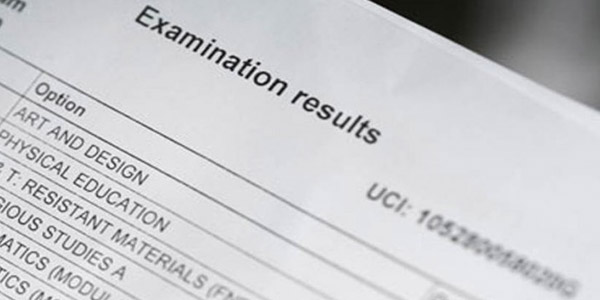Stark destination gap revealed as disadvantaged young people twice as likely to be out of work or education

As thousands across the country await their GCSE results this week, new analysis has revealed a stark ‘destinations gap’ – with young people from disadvantaged backgrounds more than twice as likely as their wealthier peers to not be in sustained work or education five years after completing their exams.
Analysis of recently-published Department for Education (DfE) data, conducted by education charity Teach First, shows that 1 in 3 (33%) young people from disadvantaged backgrounds are not in any form of sustained education, apprenticeship or employment destination five years after they finish their GCSEs, compared to just 1 in 7 (14%) of their non-disadvantaged peers.
By contrast, comparable data for the same academic year (2019/20) reveals that only 1 in 4 (27%) disadvantaged pupils go to university – meaning they are more likely to end up out of sustained work or education altogether than they are to reach higher education. Non-disadvantaged young people, however, are more than three times as likely to progress to university (46%) than they are to end up out of sustained work or education altogether.
The gap between those not in sustained destinations grows significantly in the years following completion of GCSEs:
- One year after taking GCSEs the destinations gap is 8% (12% disadvantaged vs 4% non-disadvantaged)
- Three years after taking GCSEs the destinations gap is 14% (27% disadvantaged vs 13% non-disadvantaged)
- Five years after taking GCSEs the destinations gap is 19% (32% disadvantaged vs 14% non-disadvantaged)
Teach First’s analysis of additional DfE data also reveals that this destinations gap is largely driven by higher drop-out rates for disadvantaged pupils in education after they finish their GCSEs. In 2019/20, young people from disadvantaged backgrounds were almost twice as likely to drop out of their A-Level course than their non-disadvantaged peers (13.2% compared to 6.9%).
Teach First believes that the best way to tackle the ‘destinations gap’ would be through the introduction of pupil premium funding for 16–19-year-old pupils, which currently does not exist. Pupil premium is funding aimed at supporting the education of disadvantaged pupils eligible for free school meals and is currently available for all pupils up to the age of 16.
The charity argues that the introduction of a 16–19-year-old pupil premium would improve both the attainment and retention of disadvantaged young people in key stage 5 and help close the ‘destinations’ gaps.
The charity has also recently called for a series of recommendations to improve careers education which they believe could make a tangible impact on young people’s employability. This includes businesses offering work experience for pupils from disadvantaged backgrounds to provide essential careers skills and inspire them in their future pursuits.
Russell Hobby, CEO of Teach First, said: “The destinations gap is a priority for the future of our young people – and the prosperity of our country. It cannot be right that you’re significantly less likely to have the same employment or education opportunities simply because your family has less money.
“We urge the new Prime Minister to tackle inequality in education – to ensure every child is given a fighting chance of a bright future. It’s not just a matter of fairness – our country’s long-term prosperity depends on the skills of the next generation of young people.”
Raza Ali, headteacher of The Chalk Hills Academy, part of the Shared Learning Trust in Luton, said: “Our teaching staff have been brilliant in helping our pupils navigate through their exams. We’ve provided extra revision, in-depth careers education and found ways to teach soft skills and build resilience. While we’re doing everything we can to help our pupils succeed in their GCSEs, we need more support.
“Schools that serve disadvantaged communities need more funding to fully recover from the pandemic and get through the current cost of living crisis. Due to inflation, we can’t afford to increase our teachers’ pay and provide all our GCSE level pupils with laptops for revision. We need to give our young people the best chance of succeeding in the future. If we don’t tackle this issue now, it’ll be our society that suffers in the future.”







